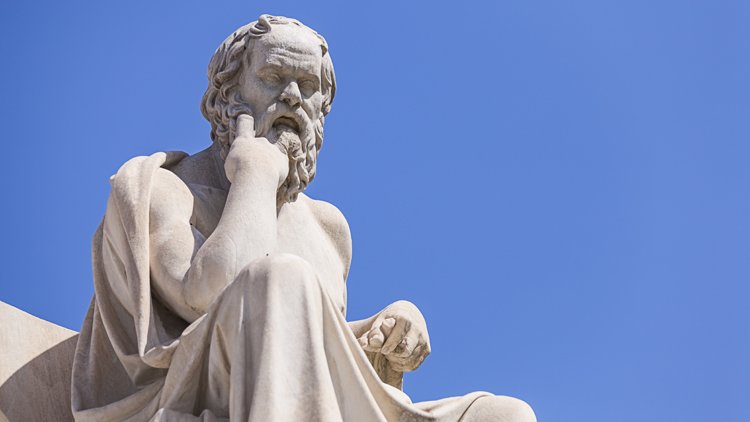In his remarks Socrates does not spare criticism of the existing political conditions, he sees the police Athens in the crisis, the customs and laws of the fathers no longer respected. However, the city's well-deserved citizens in particular are sure of their own righteousness, bravery and piety.
Socrates with his questions is an annoyance as a gossiper. They insult him with do-gooder, turning up their noses and shouting all kinds of things after him. Who loves to be shown his ignorance in public and then not to receive an answer as to what exactly the right of action is.
But Socrates counts on leading people to self-knowledge. He cannot and will not teach any new absolute knowledge.
One day his friend Xenophon asks the oracle of Delphi who is the wisest and most virtuous of all Athena. The answer of the priestess Phythia is Socrates. Word quickly gets around in the city. Socrates himself accepts it unmoved. It must be because he at least knows that he knows nothing.
However, many well-known and influential citizens feel challenged. How could it be that this know-it-all and useless person should be wise and virtuous than themselves? Anithos, an important merchant and teacher, is among the envious. He moved to the comedy poet Aristophanes to mock Socrates in a theater piece.
The clouds, so the title of the comedy, shows Socratis unflatteringly as a barefoot, withdrawn idler. Barefoot. Aristophanes thus alludes to the very modest financial circumstances of Socrates. Socrates, in contrast to his wife, does not care that he had little money at his disposal.
How numerous are the things I do not need.
Plato quotes the philosopher.
Socrates does not do justice to the accusation of leading a useless life.
 Part 2Part 4
Part 2Part 4 






I missed this series until now, as always very well explained
Your post was mentioned in the Steem Hit Parade in the following category:Congratulations @oendertuerk!